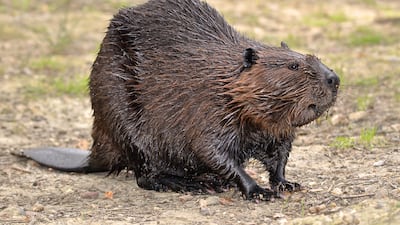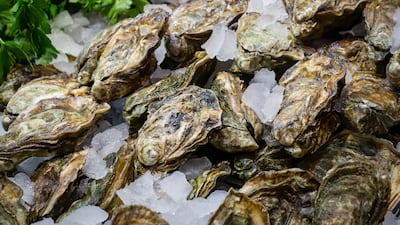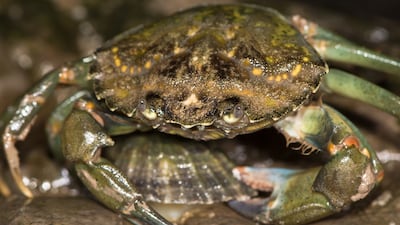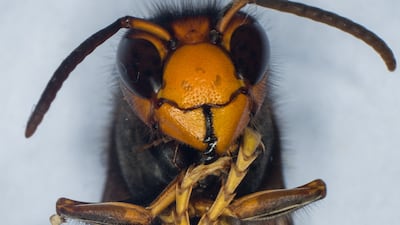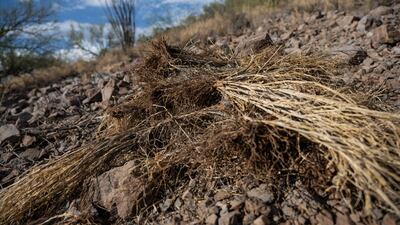Climate change is worsening the increasingly worrisome issue of invasive species, which is costing the global economy more than $400 billion a year, scientists say.
Alien species, known for spreading diseases and ravaging ecosystems globally, are increasing sharply, as are the bills for the damage they cause.
According to a new landmark study, that number, on average, has quadrupled every decade since 1970.
The report, published on Monday by the intergovernmental science advisory panel for the UN Convention on Biodiversity (Ipbes), warns of the possible health risks invasive species pose for people, including the spread of disease.
Food security and livelihoods are also being jeopardised, while invasive species are a factor in most plant and animal extinctions.
UK Centre for Ecology and Hydrology
The Assessment Report on Invasive Alien Species and their Control was produced by 86 experts from 49 countries and catalogued more than 37,000 species that have settled far from their places of origin.
Of these, 3,500 are described as invasive, meaning they cause harm to native species or agriculture.
The Ipbes report estimates the global economic cost of this to be about $423 billion per year.
Climate change to blame
Prof Helen Roy, an ecologist at the UK Centre for Ecology and Hydrology and co-chairperson of the assessment report, said that more species were likely to have been spread around the globe because of growth in the world economy, changes to the way land and sea are used, and population shifts.
"Even without the introduction of new alien species, already established alien species will continue to expand their ranges and spread to new countries and regions. Climate change will make the situation worse," she added.
Alien species may be able to multiply more easily because the predators that keep their numbers in check in their native habitats are absent in the areas into which they have been introduced.
Species may be introduced to parts of the world in which they are not native for a number of reasons.
Some are pets that escape, others are ornamental plants introduced because they are considered to be attractive.
Others are transported more inadvertently, such as marine invertebrates or plants attached to ships' hulls.
Some non-native species have been introduced to control other invasive creatures, only to become invasive themselves.
According to Ipbes, invasive species are one of the five key sources of biodiversity loss, others being climate change, pollution, direct exploitation of species (such as hunting or poaching) and changes in land and sea use (such as clearing the areas for agriculture).
Universidad de Conepcion's Faculty of Forest Sciences
"Invasive alien species have been a major factor in 60 per cent, and the only driver in 16 per cent, of global animal and plant extinctions that we have recorded, and at least 218 invasive alien species have been responsible for more than 1,200 local extinctions," Prof Anibal Pauchard, another co-chairperson of the assessment, said in a press release.
Alien insects, such as mosquitoes, are blamed for spreading diseases such as malaria, West Nile fever and Zika.
Invasive aquatic plant species, such as the water hyacinth, have affected fish numbers in places such as Lake Victoria in Africa.
Invasive plants have been blamed for providing extra fuel for wildfires.
About three quarters of the reported negative effects of invasive species are on land, with the most severe effects occurring on islands.
On more than 25 per cent of islands, Ipbes said, there are more alien plants than native ones.
More than 2,300 invasive species are found on lands managed by indigenous people with possible effects on their quality of life and cultural identity, the report said.
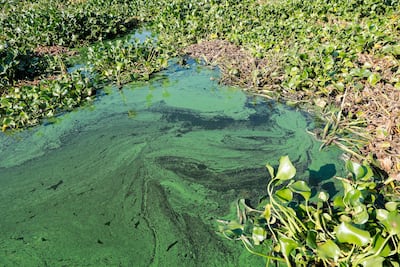
Six per cent of alien plant species are said to become invasive, compared with 14 per cent of alien vertebrates, 22 per cent of alien invertebrates and 11 per cent of alien micro-organisms.
Better border biosecurity and import controls is "absolutely the best and most cost-effective option" to prevent the introduction of non-native species, Prof Pauchard said.
In some situations, eradicating, containing and controlling alien invasives could also prove effective.
A global issue
As part of a biodiversity framework agreed upon last year, 196 governments set the target, by the end of the decade, to reducing alien introductions by half.
The Ipbes report came on the same day warnings were made that an invasive species – the Asian hornet – could damage native bee populations in the UK.
Efforts to limit the effect of invasive species include removing plants from areas in which they are causing harm, and killing mammals and birds.
The Environment Agency Abu Dhabi (EAD) recently announced that, since a campaign began in 2009, it had captured two million individuals of four invasive bird species, including types of crow, parakeet and pigeon.
In comments sent to The National, the EAD said there were "multifaceted benefits" from controlling invasive bird species, including safeguarding native birds.
"These efforts aid in ecosystem restoration by rectifying disruptions caused by invasive birds to natural dynamics, fostering balance and restoring the roles of native species," the EAD said.
Controlling invasive birds also reduces the effect these creatures may have on agriculture, according to the EAD.
On the other hand, animal welfare advocates have raised concerns about the killing of invasive species, something that happens in many countries.
They argue that control measures usually have only a temporary effect and that populations can bounce back, and also that methods of capturing and killing birds or animals may cause suffering.

